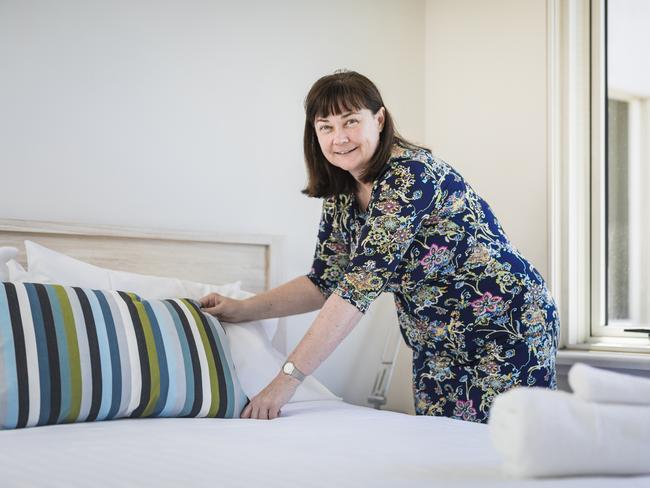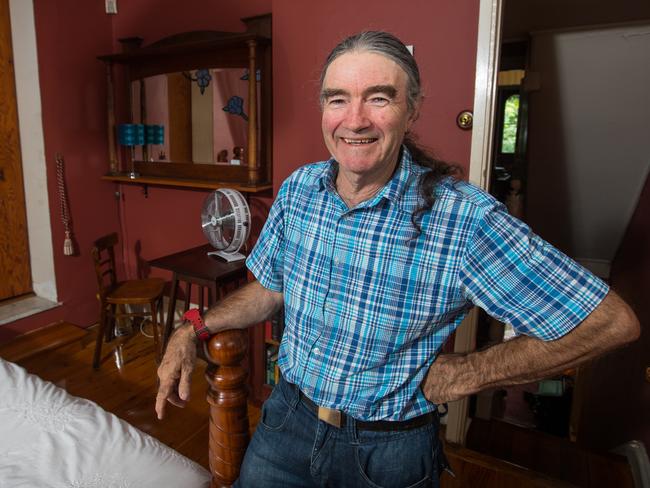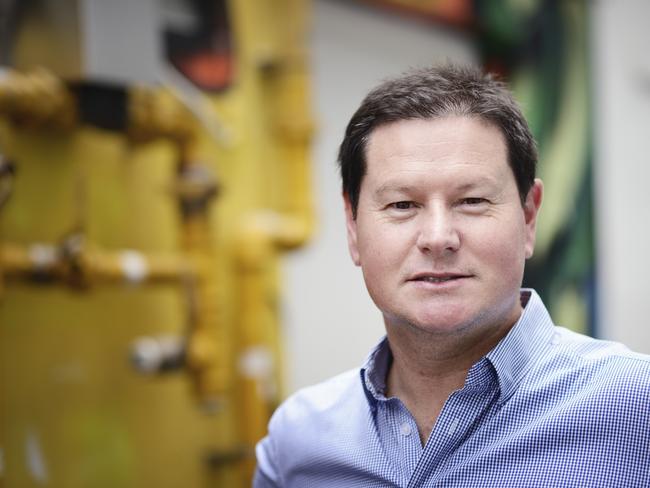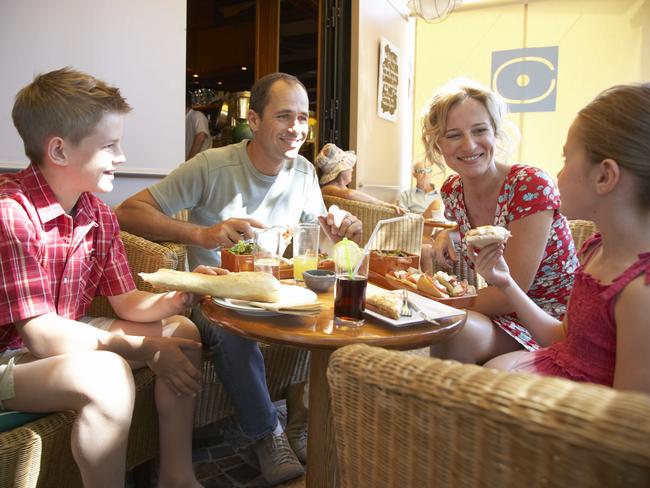Airbnb is now a multi-billion dollar business in Australia
THE first report to put a dollar figure on Airbnb in Australia has revealed it’s not really the hosts who are making the big bucks.
Lifestyle
Don't miss out on the headlines from Lifestyle. Followed categories will be added to My News.
EXCLUSIVE
THE first detailed snapshot of the economic impact of Airbnb in Australia shows local businesses are proving to be the real winners of the homestay juggernaut.
The Deloitte Access Economics Report, commissioned by Airbnb, found $441 million was spent on homesharing in 2015-16 by 2.1 million people, or an average $119 a night.
In the same period, $1.6 billion was spent by Airbnb guests on eating out, groceries, shopping, transport and attractions — highlighting the broader benefits of the short-term rentals.
Each of the 115,000 properties listed across Australia in 800 towns and cities, averaged 15 bookings a year — worth an average $4920 in annual income for the hosts.

Jodie Willmer’s decision to become an Airbnb host came about when she moved in with her partner leaving her home in St Kilda Road in Melbourne empty.
Three years on, the property is rarely vacant but Ms Willmer has noticed a decrease in bookings and inquiries as a result of the explosion in Airbnb properties.
Across Australia, 115,000 properties are now listed on Airbnb with the majority in New South Wales, closely followed by Victoria which hosted 651,600 guests over 1.1 million nights in 2015-16.
Two-thirds of those people were in the state for the primary purpose of a holiday or leisure, and 22 per cent were visiting friends or relatives.
The homestays pumped $412 million into the Victorian economy with spending on accommodation, food, drinks, entertainment and transport.
Ms Willmer said she was well aware of the broader benefits her guests provided, and even employed a couple to “meet and greet” visitors.
“My partner and I work fulltime and travel quite a lot so we can’t always meet and greet the guests so we found a fantastic couple who provide a unique concierge service,” she said.
“I think it’s an untold story — all the micro businesses and individuals who are benefiting as a result of the rise of Airbnb.”
In addition to the concierge couple, Ms Willmer said she used cleaning services for the bed linen and furniture and local tradespeople for maintenance.
She also provided recommendations for local restaurants and coffee shops to guests, which were frequently taken up.

Greg Dickins turned to Airbnb to supplement his income after work started drying up in his chosen field of journalism.
With a six-bedroom house in Petersham, Sydney, and a property in the Blue Mountains, Mr Dickins thought he would open up both to Airbnb guests.
The decision proved to be a life-changer with a steady stream of visitors through both properties easing the financial pressure on Mr Dickins.
“We’d been taking in overseas students for about 10 years but in comparison with Airbnb, they’re very high maintenance,” he said.
“Airbnb has been much more satisfactory.”
Although the Deloitte Access Economics report on Airbnb found the average annual income for an Airbnb host was $4920, Mr Dickins conceded he was making a lot more.
“There’s really no other accommodation for tourists in Petersham so we kind of serve a need for people who have family nearby or are going to local events,” he said.
“It’s creating a new mini-economy. All of those people coming in are spending their money in the local community, eating out, buying groceries, catching transport.
“We’re not really taking anyone away from hotels at all.”
Airbnb country manager Sam McDonagh said the report laid out the valuable contribution the company was making to the Australian economy.
“We’re playing an increasing and significant role in the growth of tourism here and around the world,” said Mr McDonagh.
“We know our hosts are wonderful ambassadors, and 80 per cent of travellers who use Airbnb do so because they want to live like a local.”
He said the large percentage of properties outside of traditional tourist spots meant visitors were being dispersed into regional areas.
“We know that travellers to Airbnb want to travel deeper and experience a destination on more than a tourist level,” Mr McDonagh said.

Restaurant and Catering Association CEO John Hart said Airbnb could be the best thing that happened to their industry with guests spending $544 million on eating out in 2015-16.
“There was a shortage of accommodation before Airbnb came along, which meant there was a capacity constraint on visitations,” Mr Hart said.
“Now Airbnb is in the market and we’ve got the huge number of visitor nights, the savings that visitors are making on accommodation they’re spending on food and eating out.”
“And because we’ve got people out in the ‘burbs, they’re spending in local restaurants.”

Report author, Deloitte Access Economics partner John O’Mahony said there was evidence more people were travelling as a result of Airbnb, or using homestay accommodation rather than imposing on family and friends.
“About 51 per cent of people who use Airbnbs are Australians who will stay domestically in another city,” said Mr O’Mahony.
“Our market is more developed than literally hundreds of cities around the world, and I can tell you from other research I’ve done that globally Australia is a very strong user of new technologies and sharing economy in general.”
The report found Airbnb’s contribution to GDP was $1.6 billion in 2015-16, and the platform supported 14,000 jobs in addition to the hosts.
“Airbnb is not just something that’s happening in communities and neighbourhoods, it’s of growing importance to tourism policy and national economic policy as well,” said Mr O’Mahony.



